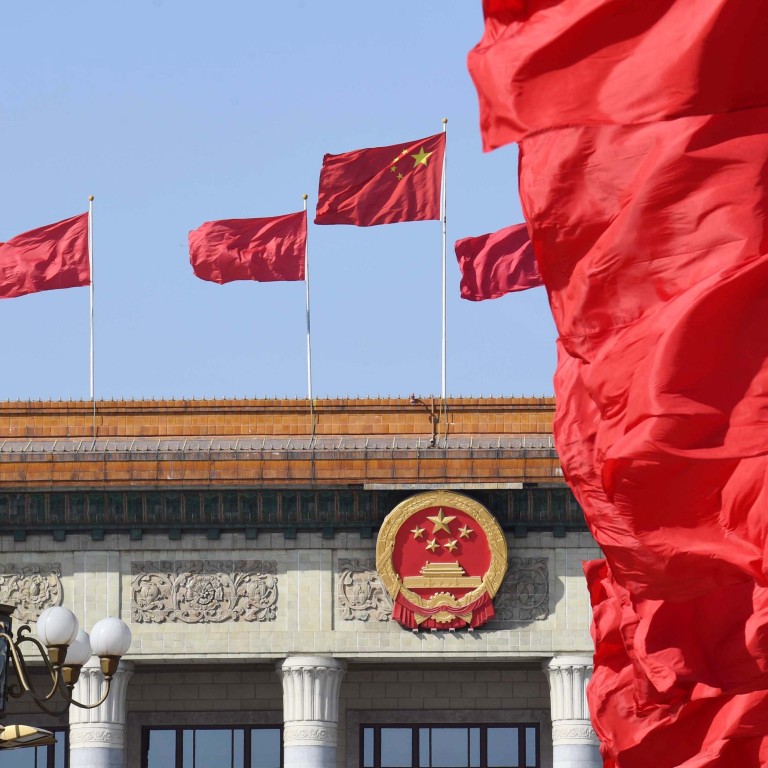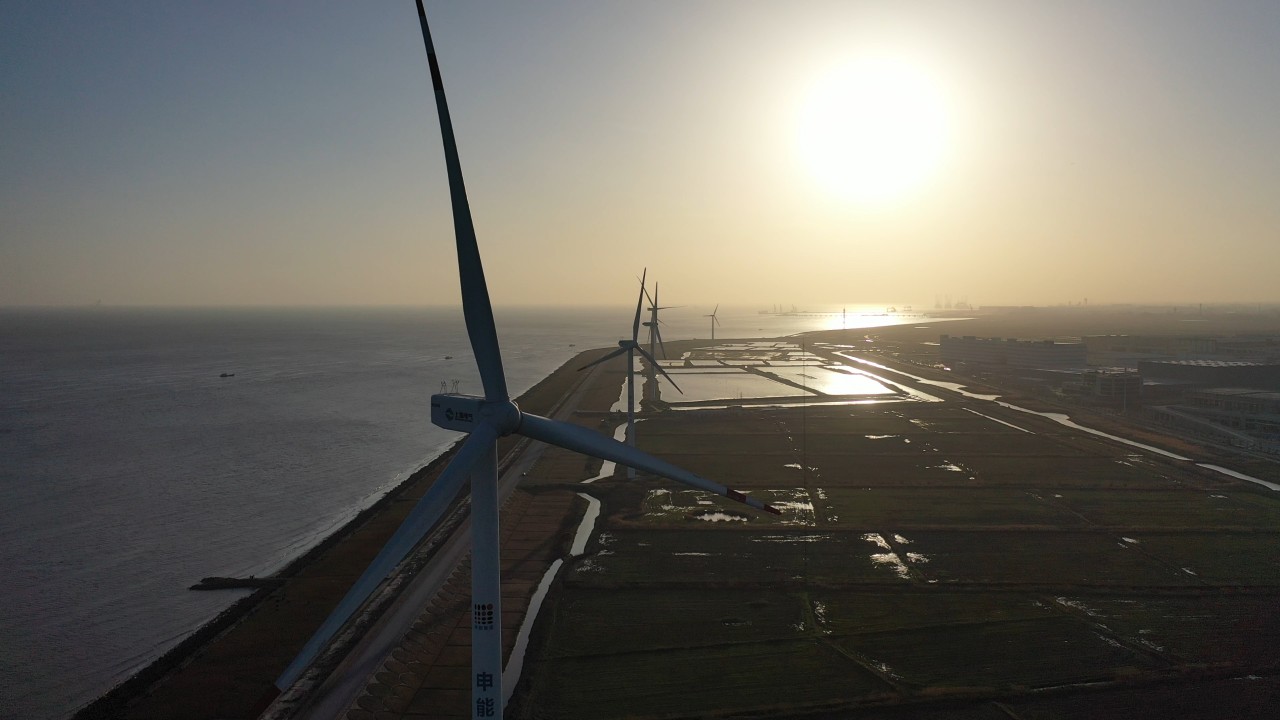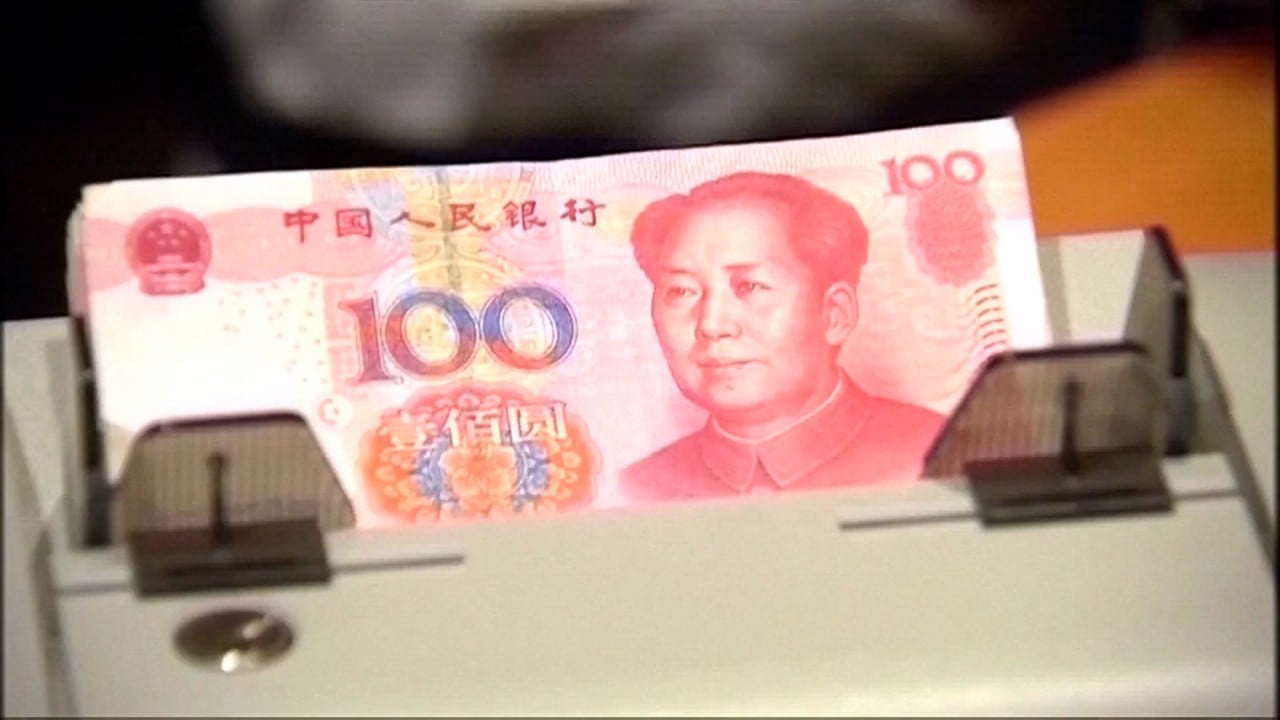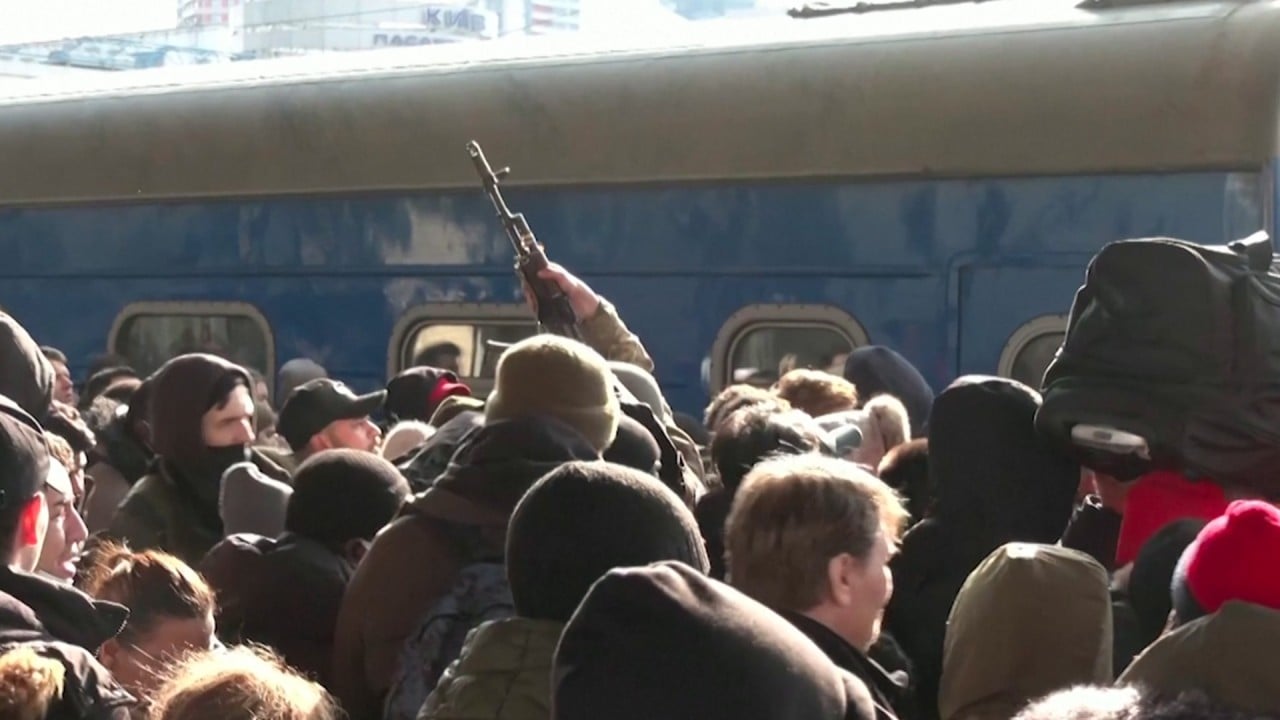
Traders count on China’s ‘two sessions’ to reverse stock market decline as delegates set to endorse policy loosening to spur growth
- Beijing will make stabilising growth the top priority at the upcoming NPC and CPPCC gatherings, investment banks predict
- Money managers see opportunities in property developers, household appliance makers and financial firms, which stand to benefit from pro-growth measures
The National People’s Congress (NPC) and the Chinese People’s Political Consultative Conference (CPPCC) will be in the spotlight at a time when the pressure on a slowdown in growth is building up and the government’s efforts to bolster the economy have so far failed to buoy share prices.

Money managers including HFT Investment Management see opportunities in property developers, household appliance makers and financial names, which stand to benefit from pro-growth measures.
Two weeks after the meeting, the index has posted an average gain of 1.5 per cent, the data shows.
The CPPCC, which advises the government on major policies, kicks off on Friday, while the NPC, the nation’s top legislative body, is due to start its meeting the following day.
So far, investors have been unconvinced by what Beijing has done to stem a decline in growth. That includes two consecutive cuts in the loan prime rate (LPR) in December and January, a record amount of credit advanced by commercial banks last month and the easing of curbs on the property sector.
The Shanghai Composite Index of onshore stocks has retreated about 4 per cent this year, falling in tandem with a global rout spurred by fears of aggressive policy tightening by the Federal Reserve.
China’s growth risks losing steam this year. Expansion is expected to moderate to 5.2 per cent in 2022 from 8.1 per cent in the preceding year, according to the consensus estimate of economists compiled by Bloomberg. China will probably target at least 6 per cent growth this year, according to ING.
A credit crunch rattling the property sector, lockdown measures imposed to fulfil the zero-Covid policy and concerns about potential capital flight because of the strengthening US dollar are among the headwinds facing the world’s second-largest economy.
“Given that the pressure on this bout of the economic slowdown is big, we believe that there will be probably more room for monetary policies before the second quarter,” said Cai Ruolin, a fund manager at HSBC Jintrust Fund Management in Shanghai.
UBP, the Swiss private bank, expects one more cut in interest rates in March or April before the authorities start to rely on credit supply, open market operations and lowering the reserve requirement ratio as their primary easing measures going forward. Fiscal support may take over from monetary stimulus in the second half of the year as a growth-bolstering measure, it said.
Investors’ risk appetite may soon recover amid signs that Beijing has already started to extend policy support beyond traditional infrastructure projects like building roads and bridges.
The nation’s top planning body this month issued a guideline requiring internet food-delivery platforms such as Meituan to cede more profits to restaurants, while at least 15 local governments outlined plans to speed up new-infrastructure construction such as wind and solar power.
For Lin Rongxiong, an analyst at Essence, the only way is up for China’s stocks as increased policy support puts a floor under equities.
“The market will ultimately choose to stand on the same side with policies,” said Lin. “The market is now at the bottom and there is no room for a systemic decline.”




